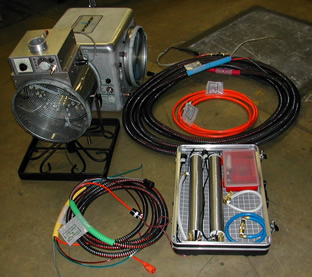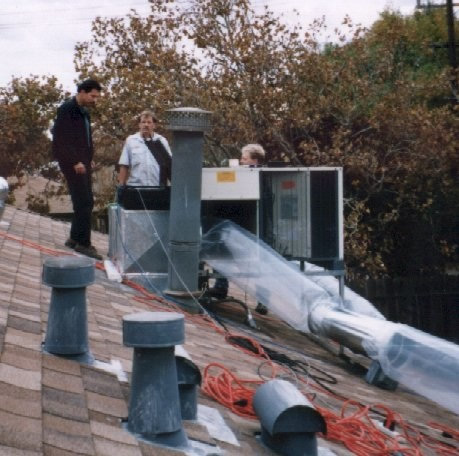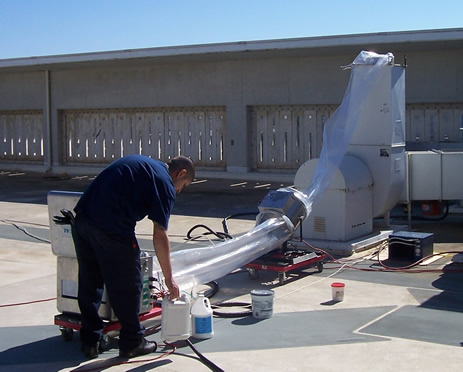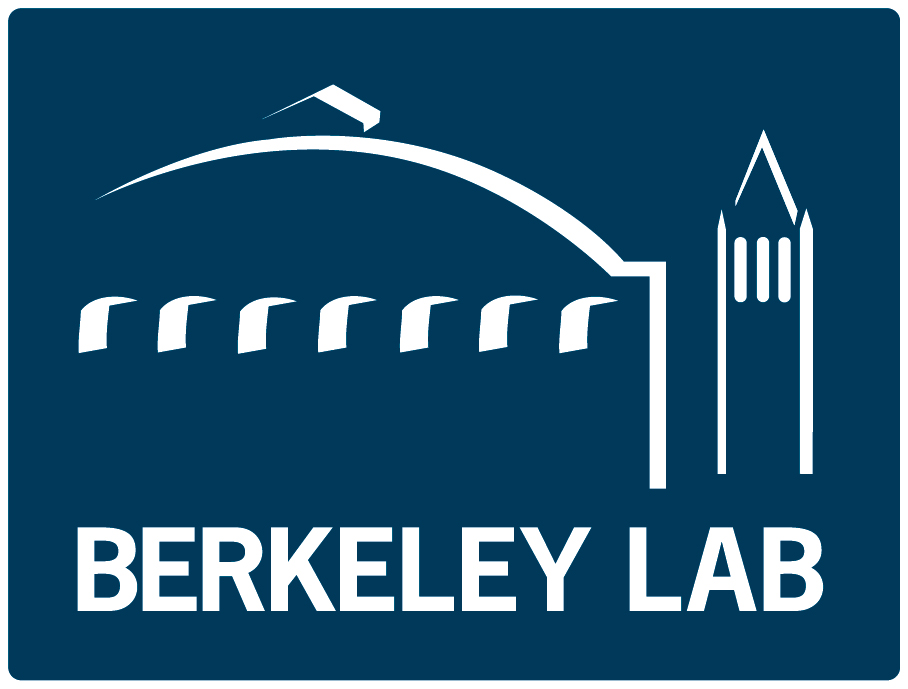If every home in the United States sealed its leaky HVAC ducts, the nation would save $5 billion annually in energy costs. Typical ductwork systems, both residential and commercial, lose 25-40 percent of heating and cooling energy; even newly installed systems experience 10-30 percent leakage.
Solving this energy-wasting problem, once a costly, labor-intensive process, can now be achieved in four to eight hours using the Aeroseal technology funded by the DOE’s Office of Energy Efficiency and Renewable Energy together with the California Institute for Energy Efficiency, the EPA and the Electric Power Research Institute (EPRI) and developed at Lawrence Berkeley National Laboratory. Aeroseal, LLC commercialized the technology, and scores of Aeroseal dealers employing trained staff provide service to homeowners and building owners nationwide.

Aeroseal uses airborne adhesive particles to seal leaks from inside the ducts reaching previously unfixable leaks at low cost and minimal disruption to building occupants. Sealant particles of two to twenty micrometers are injected into a duct system while specialized software allows both technician and customer to view the process in real time. Prior to sealing, furnaces, fans and grilles are blocked, directing all adhesive particles towards cracks, leaks, and holes. Aeroseal’s technique has been proven to seal from 70 to 90 percent of duct leaks and is guaranteed to last for ten years.

Besides sealing ducts in thousands of residences, Aeroseal has been used successfully in commercial buildings across the country. Most notably, it has reduced energy use in HVAC-intensive buildings such the Cleveland MetroHealth Hospital, university residential buildings in Buffalo, New York and Boston, and casinos and a city center complex in Las Vegas.
The Lawrence Berkeley National Laboratory Innovation and Partnerships Office handles technology transfer, including licensing to industry partners and startups. To learn more about licensing and collaborative research with Berkeley Lab, email ipo@lbl.gov. Technologies available for license may be viewed here.

